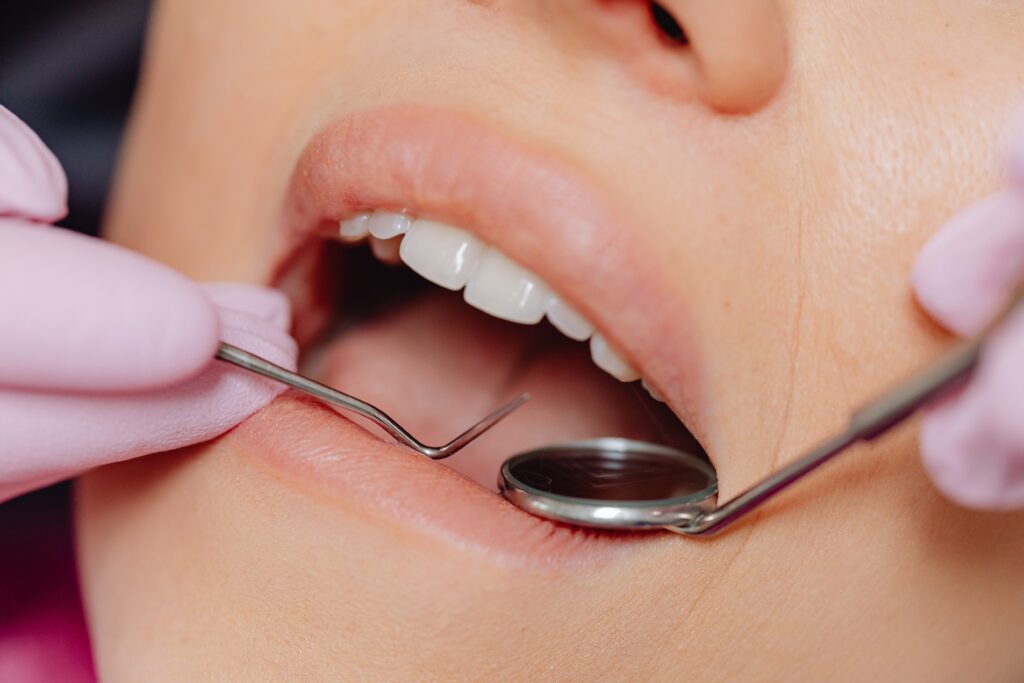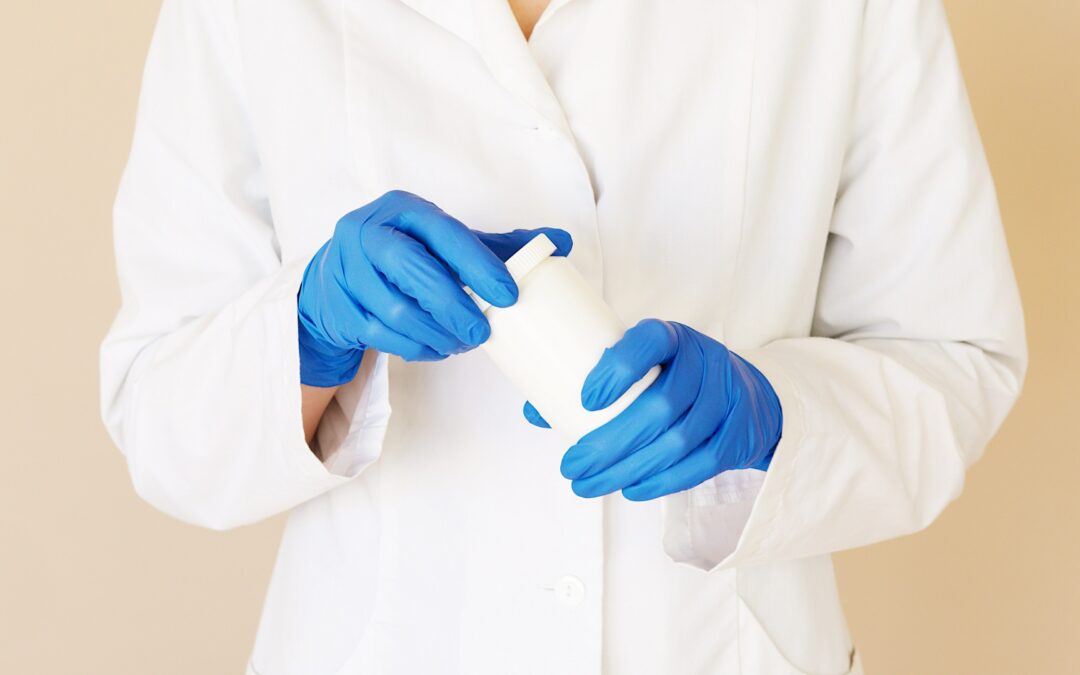Before starting a new medication, it’s important to understand its side effects. Many popular medications have side effects that can negatively impact your oral health. If you’re taking a medication that can damage your teeth or gums, it’s important to seek regular dental treatment to offset these side effects. In this article, we’ll talk about how medication can affect your oral health and what you can do to keep your smile healthy.
Common Oral Health Side Effects
Here are some of the most common oral health side effects to watch out for and which medications are most likely to cause them.
Dry Mouth
Dry mouth is a very common side effect of modern medications that can cause tooth decay when left unchecked. There are hundreds of medications that can cause dry mouth, including both prescription and over-the-counter medications. These include high blood pressure medication, decongestants, antihistamines, pain medication, antacids, antidepressants, Parkinson’s medication, and more.
Saliva keeps your mouth clean and healthy by washing away food particles and bacteria, neutralizing acids, and repairing tooth enamel. When you don’t have enough saliva in your mouth, bacteria and mouth acids build up in large quantities and cause tooth decay.
Enlarged or Bleeding Gums
Certain medications can make your gums more sensitive, causing them to bleed when brushing, flossing, or even eating. This side effect is most common with aspirin and other blood thinners. There are also some medications that can make your gums swell, such as antiseizure medications and immunosuppressants. Some forms of oral contraception can also increase your chances of gum irritation. If you struggle with bleeding or enlarged gums, you’ll need to take extra care during your oral care routine to avoid irritation.
Thrush
Thrush is an oral yeast infection that happens as a result of the overgrowth of the Candida fungus. Medications that can cause thrush include inhaled corticosteroids, antibiotics, and cancer treatments like chemotherapy. Thrush infections cause raised white bumps inside the mouth, as well as cracked, red areas at the corners of the lips. With antifungal medications, thrush is relatively easy to treat.
Tooth Discoloration
Tooth discoloration can happen as a side effect of common antibiotics and acne treatments such as doxycycline, tetracycline, and minocycline. Some antihistamines and blood pressure medications can also lead to mild discoloration. Discoloration can be remedied with professional whitening treatments.
Sugar-related Side Effects
Many medications contain sugar, which can damage your teeth if consumed in large quantities. Sugar is particularly common in medications for children, as it can mask unpleasant flavors. Other medications that often contain sugar include cough drops, antacids, and chewable vitamins. To avoid tooth decay or cavities, be sure to brush your teeth directly after taking this medication.
Managing Oral Health Side Effects
If one of your medications is causing severe oral health problems, talk to your doctor and dentist about alternatives. There may be another medication that provides the same treatment without affecting your oral health. Reducing the dose or frequency of your medication may also reduce the side effects.
Unfortunately, there are many situations in which switching medications isn’t an option. However, there are steps you can take to keep your side effects in check so your smile stays healthy.
Managing Dry Mouth
There are many small lifestyle changes you can make to manage mild cases of dry mouth. Cutting back on caffeine, alcohol, and tobacco can reduce the discomfort associated with dry mouth. Drink water frequently throughout the day, especially during mealtimes, and use sugarless gum or mints to stimulate saliva production.
For severe cases of dry mouth, ask your dentist about artificial saliva products. Artificial saliva comes in many forms, including sprays, gels, and rinses. In addition to preventing tooth decay, it also reduces discomfort associated with dry mouth.
Brush Carefully
If you’re struggling with oral health side effects related to your medication, you’ll need to be extra careful when brushing your teeth. Invest in a high-quality electric toothbrush and be very gentle to avoid bleeding and irritation.
Make sure to floss your teeth at least once per day as well. This removes food particles that could be contributing to tooth decay and gum irritation. It’s important to remember to floss even if your gums are feeling sensitive.

Communicate With Your Dentist
It’s important to communicate openly and honestly with your dentist about the medications you are taking, especially before receiving treatment. This way, your dental team can take steps to keep you comfortable during your office visit.
For example, if you are experiencing bleeding gums as a side effect of your medication, your dentist can take extra care during cleaning to minimize bleeding. They can also recommend at-home changes to your dental care routine based on your specific symptoms.
It’s also very important to share your medications with your dentist to avoid interactions. Your dentist may need to use anesthesia or numbing agents for certain treatments. They may also prescribe medication to help with bleeding gums, pain, or other challenges as a result of dental treatment. These medications have the potential to interact with other medications you are taking, which can cause even more dangerous side effects. When your dentist is fully aware of the medications you are taking, they can use that information to make safe decisions following your treatment.
To keep your teeth and gums healthy, it’s important to understand the way medication can affect your oral health. When switching to any new medication, be sure to talk with your doctor and make sure you understand the side effects. If you think your medication is negatively affecting your oral health, talk with us about it. If you’re in need of dental care in the Virginia Beach area, Mill Dam Dental Care is here to help. Our expert team takes a personalized approach to give you the beautiful, healthy smile you’re looking for. Contact us today to schedule an appointment or learn more about our services.

